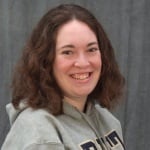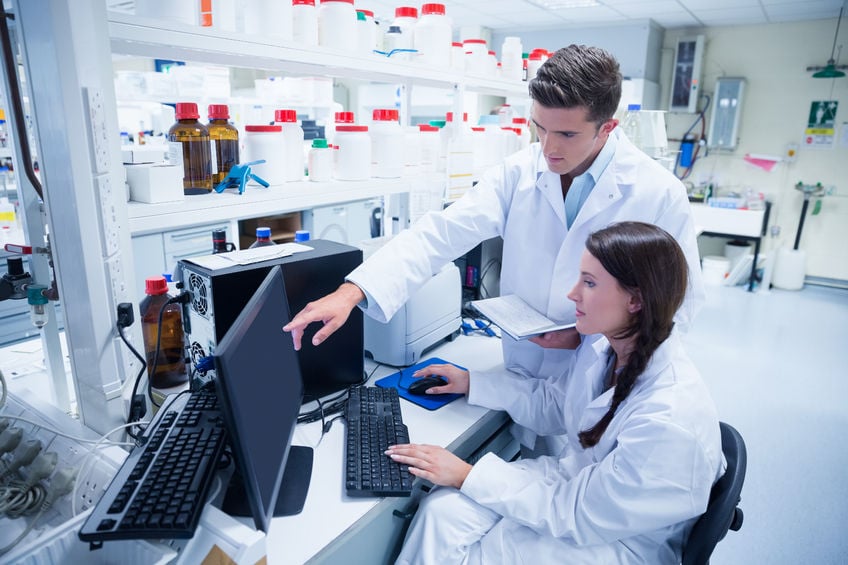Allow me to set the stage: a summer evening. A group of strangers pile into a cafe to play board games. Amid the discussion of what games to play and food to order, introductions abound. Then, you hear the fellow next to you say that he works at a biotech startup- something not far off from your own area of research in biomedical sciences. Even though you’re interested in learning more about his research, you’re at a social event, and not one restricted to scientists. What to do?
After having often found myself in this and other similar circumstances, encountering another scientist whose research or career path I was interested, but in a non-professional setting, I’ve come up with some tips to help other scientists navigate the situation.
- Always carry business cards. Keeping business cards in your wallet at all times will ensure that you’re prepared when you encounter a professional situation away from the lab or office. Business cards are lightweight and can be ordered inexpensively online (if your university doesn’t provide a service), meaning that the benefit to them significantly outweighs the cost. I’ve found that many scientists don’t have a business card, and especially not those “in training” (i.e. undergraduate and graduate students and post docs). However, these are precisely the stages during which they’re the most useful, as it’s when you will most likely be networking to find a job.
- Keep an open mind. Scientists that you encounter in a social setting will often be different folks than you’d encounter at a scientific meeting of your field, simply due to the sheer number of different kinds of scientists that exist! But given the interdisciplinary nature of science these days, it is likely that you will have something in common with any other given scientist, whether a tangential research connection, work in the same kind of environment (i.e. academia or industry), or similar past experiences (such as graduate school or job hunting). Keeping an open mind to what you can learn from another scientist will allow you to make meaningful connections.
- Draw a connection when you introduce yourself. If another scientist has already introduced themselves to the group, something as simple as saying, “I’m also a scientist…” to preface your introduction shows that you’ve been receptive to what others have been saying, and initiates a connection between you and other scientist(s). Even if you don’t talk in more detail right then, you’ve established that you have a shared interest that you might want to discuss further.
- Ask lightweight follow up questions. Without discussing science (which could isolate non-scientists in the group or dissipate a relaxing atmosphere), you can still engage in a conversation that indicates your interest in the other person’s work. Questions revolving around what brought them to the city and whether they like their job allow you to get some insight into someone’s professional life without spending time in the details. Additionally, it can be enlightening to young researchers as these questions get at the big picture of a particular career, whereas most career discussions in a lab setting focus on the research being done.
- Plan to reconnect afterwards. Make sure to exchange those business cards you’re now carrying with you. Pull out your phone with the LinkedIn app installed and add each other then and there. In the worst case scenario, find a pen and paper and exchange email addresses. Even if you haven’t spoken in much detail during the event, getting someone’s contact information is like getting permission to follow up with them. Just like after a professional networking event, it is completely appropriate to send a follow up email within the next few days. These subsequent conversations are your best opportunity to ask detailed questions.
It’s important to be prepared to encounter other scientists “in the wild” so that you can make the most of spontaneous opportunities to grow your network. Using these tips, you can take advantage of a potential professional connection, no matter the context of the encounter.
Quartzy is the world’s No. 1 lab management platform. We help scientists easily organize orders, manage inventory, and save money. We’re free and always will be. Visit Quartzy.com or reach out at info@quartzy.com.
Interested in writing for The Q? Send us an email!
Share this:
Tags: advice, tips, career, academia

Aliyah W.
Aliyah is a science communicator with a PhD in immunology, currently based in Boston. You can find her on Twitter @desabsurdites and on her blog at www.aliyahweinstein.com.




